#vocab
Text
finding out the word "skein" not only means a loose length of string or yarn, but also wild swans or geese in flight. having an absolutely beautiful moment.
6K notes
·
View notes
Text
Rare English Words
Epoch -- a particular period of time in history or a person’s life
Intransigent -- refusing to agree or compromise
Beamish -- bright, cheerful, optimistic
Insouciant -- free from worry, concern, or anxiety
Veridical -- truthful
Effulgent -- shining forth brilliantly; radiant
Venetus -- having the color of the deep blue sea
Orphic -- mysterious and entrancing; beyond ordinary understanding
Eldritch -- eerie; weird; spooky
Esoteric -- intended for or likely to be understood by only a select few; private; secret
Rout -- to howl as the wind; make a roaring noise
Aeonian -- eternal; everlasting
Verendus -- to be feared; worthy of reverence; giving an appearance of aged goodness
#langblr#language#writing#writeblr#writers#resource#resources#writing resources#vocabulary#vocab#english vocab#english vocabulary#rare english words#rare words
3K notes
·
View notes
Text
ancient greek words for colors:
On the whole, the Greeks were not really concerned with giving names to specific colors. Their color terms were vague, often had more to do with shade than color difference, and drew in a sort of dynamic physicality that is honestly incredibly interesting.
μέλας and λευκός, which were commonly used to refer to black and white respectively, were still more involved with shade than the particular colors that we perceive as black and white. μέλας also meant dark, murky, and swarthy. λευκός was light, bright and clear, referred to any white color from a pure white to a light grey, and could also refer to someone with lighter skin.
χλωρός meant pale green or greenish yellow, but also commonly meant pale or pallid when referring to people and fresh or blooming when referring to plants and liquids (including blood and tears).
πορφύρεος is where we get the color term purple. And when it was referring to clothes or things, it did mean purple. But when it was describing people, especially their complexions, it meant bright red or flushed. This definition originates from the basic meaning of the word: heaving, surging, gushing, coming from the verb πορφύρω.
ξανθός and ἐρυθρός are perhaps the only straightforward terms, meaning yellow or golden and red respectively. ξανθός was typically used to describe blonde (ish) people; Achilles is described as having ξανθή κόμη (golden hair).
γλαυκός was commonly used to refer to the color grey, or simply to describe something as gleaming. When it refers to eyes, it usually describes the color; the most famous example being Athena and her epithet of γλαυκῶπις or grey-eyed (or gleaming eyed).
And now let's talk about κυάνεος. We get the color term cyan from it, and the word is popularly considered to refer to a dark blue. But that isn't exactly accurate. If we look at what this word typically described: hair, people, etc., it is clear that the concept of blue that we have nowadays wasn’t really coming into play. In fact, the more general translation is dark or black, conveying a shade rather than a color, like μέλας. If I were to attribute a color term to this word at all, I would probably say blue-black, or a cool black, to convey the depth of that shade, which is probably what the Greeks were describing.
#ancient greek#vocab#vocabulary#language learning#greek language#greek vocab#classical literature#classics#colors#words for colors#how to describe colors#dys blurbs#i had to make my own list because every other one i've seen has colors that aren't referred to by texts with as much frequency#achilles#athena#the iliad#the odyssey
526 notes
·
View notes
Text
#lauryn hill#fugees#vocab#ms. lauryn hill#wyclef jean#pras#1994#90s hip hop#blackisbeautiful#blackpeople#blackgirlmagic#afrocentric#afrocentrism#fortheculture#blackculture#blackmusic#blackistheblueprint#blackisavibe#blacktumblr
1K notes
·
View notes
Text
今天的成语 An Idiom I Learned Today
recently learned about a new idiom and thought i would share! not sure if it counts as a 成语 per se, since it is 8 characters instead of 4. nonetheless here it is.
三天打鱼,两天晒网
sān tiān dǎ yú, liǎng tiān shài wǎng
literally: fish for 3 days, sun-dry the net for 2 days
figuratively: to lack perseverance; to not earnestly work toward something
example:
你要是三天打鱼两天晒网,那你永远不会进步。
If you "fish for 3 days but sun-dry the next for 2," then you won't ever improve.
it's the idea that if you work towards something for 3 days but then rest for 2, you're basically wasting your time and not putting in as much effort as you could—since you could be putting that effort in all 5 days.
it's definitely a very chinese concept 😅 i'm pro resting myself LOL
#chinese langblr#mandarin langblr#chinese learning#chinese#langblr#mandarin chinese#language learning#mandarin#learning languages#成语#chengyu#idioms#vocab#zhuzhu rambles
136 notes
·
View notes
Text
here’s an interesting internet word i just learned:
垢作る(あかつくる) = to make an account (on a website)
the use of 垢 is as an ateji from アカウントを作る! 💻🖱
466 notes
·
View notes
Text
les signes de ponctuation en fraçais
le point - period (🇺🇸) full stop (🇬🇧) [ . ]
la virgule - comma [ , ]
le point-virgule - semicolon [ ; ]
les deux points - colon [ : ]
Les trois points de suspension- ellipsis [ ... ]
le point d'interrogation- question mark [ ? ]
le point d'exclamation - exclamation mark [ ! ]
l'apostrophe (f) - apostrophe [ ' ]
les guillemets - guillemets [ « » ] (En anglais, on n’emploie jamais de guillemet français)
les guillemets anglais/les guillemets en apostrophe - quotation mark [ " " ] (🇺🇸) [ ' ' ] (🇬🇧) rarely/never used in French
les parenthèses - parenthesis [ ( ) ]
les crochets - brackets [ [ ] ]
les acolades - curly brackets/braces [ { } ]
le tiret - dash [ - ]
le tiret long/tiret cadratin - em dash [ — ]
la barre oblique/le slash - slash [ / ]
la barre oblique inversée/ le backslash - backslash [ \ ]
l'esperluette (f) - ampersand [ & ]
l'arobase - at sign [ @ ]
l'astérisque - asterisk [ * ]

#grammar#langblr#french#learning languages#french language#vocab#french langblr#punctuation#vocabulary#learn french#français#francais
217 notes
·
View notes
Text
豆知識
まめちしき
Literally: Bean knowledge
Meaning: Trivia
#japanese langblr#japanese studyblr#japanese language#japanese#日本語#vocab#mine#its such a cute word i was just reminded of
472 notes
·
View notes
Text
Käärijä - Cha Cha Cha vocabulary in Finnish

Viikko - week
Päivä - day
Mielenkiinto - interest
Rata - nightlife, going to bars, drinking (esp. during the weekend)
Ilta - evening
Aika - time
Ulkokuori - shell
Juoma - drink, beverage
Huominen - tomorrow
Tuoppi - pint
Huoli - worry
Tuoli - chair, seat
Naamataulu - face
Parketti - (dance)floor
Maailma - world
Samppanja - champagne
Silmä - eye
Puhe - speech
Puoli - side
Arki - everyday life; weekday, working day
Mies - man
Rankka - exhausting, hard
Pitkä - long
Nuori - young
Jäinen - icy
Sekaisin - messed up
Vapaa - free
Vakava - serious
Toinen - other, another
Olla - to be; to have
Kumota - to down (a drink)
Tuhota - to destroy, to demolish
Pitää kiinni - to hold
Miettiä - to think
Tarttua kiinni - to grab
Haluta - to want
Jatkaa - to continue
Pysyä - to stay
Kutsua - to invite, to call
Olla lukossa - to be frozen
Tulla - to come
Lähteä - to leave, to go
Tanssia - to dance
Pelätä - to be afraid of, to be scared of
Kaataa - to pour
Karsastaa - to have eyes that are turned in different directions
Sammaltaa - to slur
Saada valta - to get (power) over
Paljon - a lot, much
Takana - behind
Vielä - still
Kaksin käsin - with two hands
Niin kuin, “niinku” - like
Kunnes - until
Ei enää - no more
Muutama - a few
Päälle - on
Tänään - today
Tämä, “tää” - this
Minä, “mä” - I
Se - it, that
Ja - and
Ei - no
Kun, “ku” - when
Silti - still
Vielä - still
Nyt - now
Jo - already
Ei laisinkaan - not at all
#Finnish#suomi#polyglot#languages#langblr#languageblr#language blog#langspo#langtwt#tongueblr#studyblr#vocab#Käärijä#lyrics#ESC#Eurovision#Eurovision Song Contest#music
461 notes
·
View notes
Text

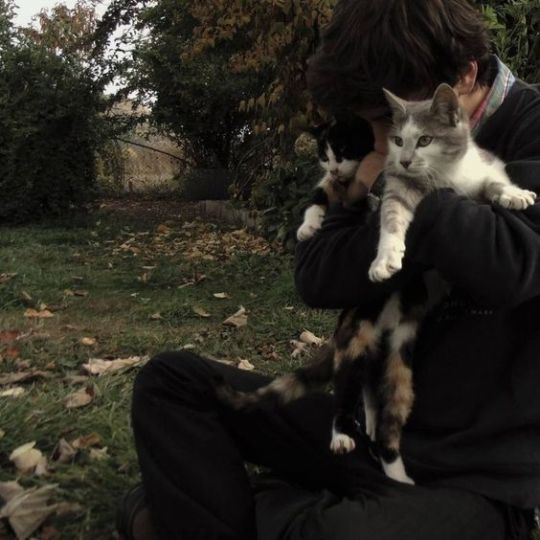
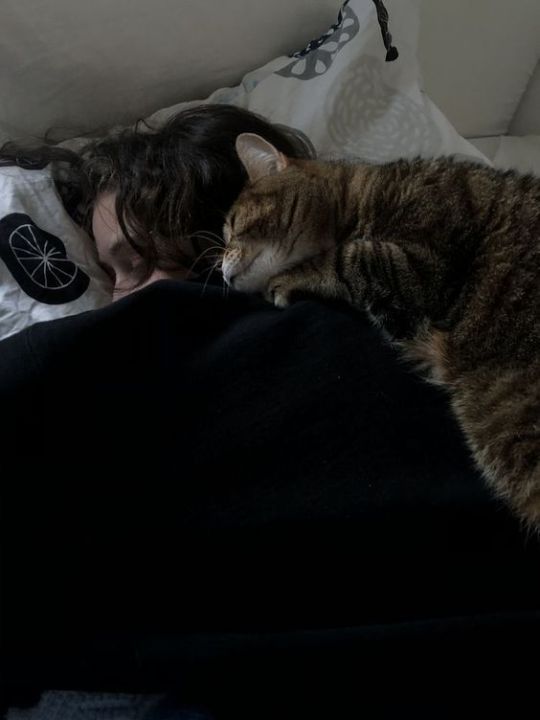
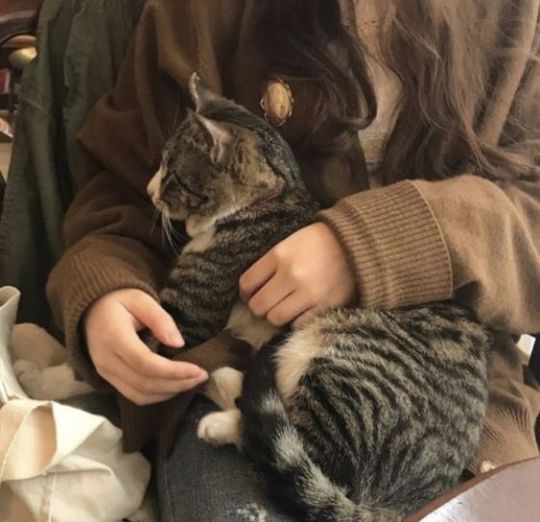



#chaotic academia#dark academia#light academia#classic academia#books & libraries#words words words#words#vocabulary#vocab#english vocab#english#word of the day#dark academia aesthetic#dark academism#light academia aesthetic#light academism#chaotic academic aesthetic#cats#kitties#kitten#cute cats#cute animals
87 notes
·
View notes
Text
Pitch, Please Pt. 1 [new series alert]

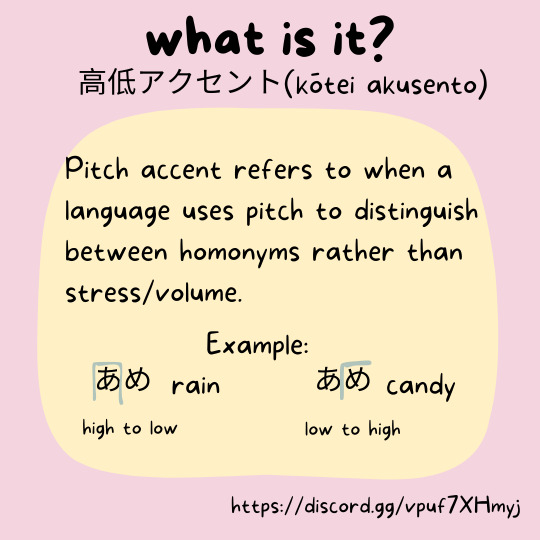
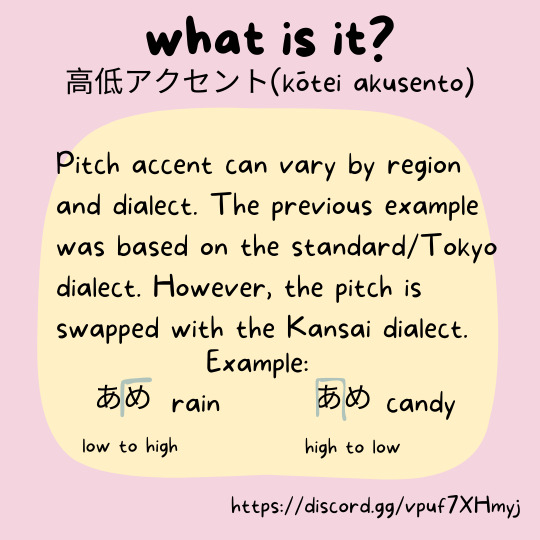
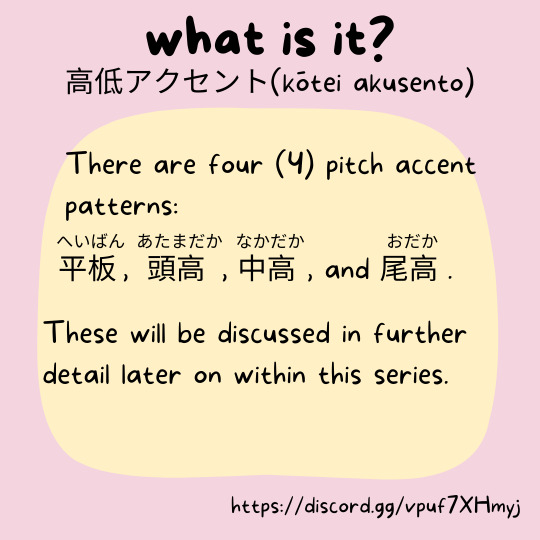

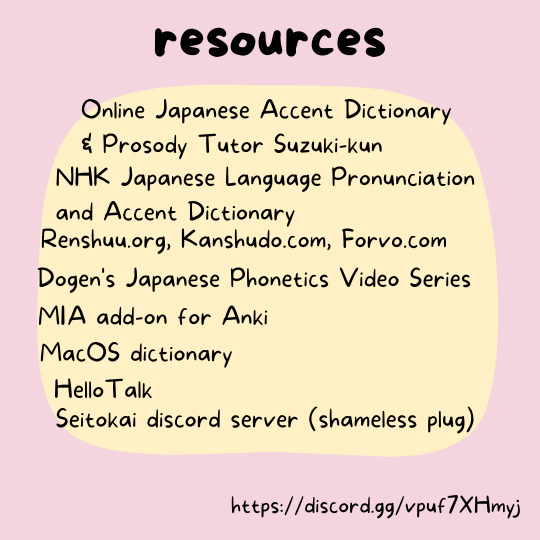

This was launched on the Seitokai IG (seitokaisnihongo). Keep reading this post to get information that is written on the graphics (and the IG caption).
This is a new series that I've been working on for a bit! It'll be discussing pitch accent, dialects, listening comprehension, and anything else that may fall within that category.
If there's a particular dialect that you'd like for us to cover in this series, feel free to stick it in the reblogs, my inbox, my asks, on the Seitokai instagram, or the Seitokai discord server!
Without further ado, here is what the posts say above!
Pitch, Please! Let's talk about pitch accent.
What is it?
Pitch accent, known as 高低アクセント(kōtei akusento) in Japanese, refers to when a language uses pitch to distinguish between homonyms rather than stress/volume. For example: あめ, meaning rain (high pitch to low) vs あめ, meaning candy (low pitch to high pitch).
Pitch accent can vary by region and dialect. The previous example was based on standard/Tokyo dialect. However, the pitch accent is swapped with the Kansai dialect. あめ, meaning rain goes from low pitch to high and あめ, meaning candy goes from high pitch to low.
There are four (4) pitch accent patterns: 平板 (へいばん), 頭高 (あたまだか), 中高 (なかだか), and 尾高 (おだか). These will be discussed in further detail in a later post within this series.
How to work on it?
Listen to native speakers (podcasts, news channels, videos, etc.)
Converse with native speakers (if possible)
Mimic the correct pronunciation
Be willing to ask for help and accept correction
Resources
Online Japanese Accent Dictionary & Prosody Tutor Suzuki-kun
NHK Japanese Language Pronunciation and Accent Dictionary
Renshuu.org, Kanshudo.com, Forvo.com
Dogen's Japanese Phonetics Video Series
MIA add-on for Anki
MacOS dictionary
HelloTalk
If you're looking for fellow learners, there are over 500 of us in the Seitokai discord server (shameless plug) and we'd love to have you!
#japanese#learn japanese#study japanese#pitch accent#japanese dialects#japanese grammar#kanji#vocab#jlpt#reading practice#listening comprehension#reading comprehension#shay's back with another post#pitch please#linguistics#seitokai#grammar
234 notes
·
View notes
Text
Chinese Time of Day Vocabulary
I’ve been keeping a list of words/characters related to times of day since last year. You probably know basic words like 早上, 上午, 晚上, etc. But there are so many other words and characters you may encounter in your language journey!
Note: this list isn’t meant to be complete.
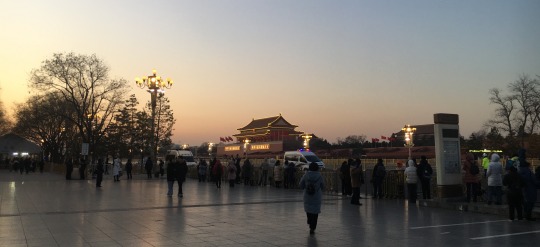
Sunset (I think) by Tian’anmen Square about 3 years ago.
Dawn/early morning
天亮 tiānliàng - dawn / daybreak
日出 rìchū - sunrise
早 zǎo - early / morning / Good morning! / long ago / prematurely
一大早 yīdàzǎo - at dawn / at first light / first thing in the morning
早上 zǎoshang - early morning
旭 xù - dawn / rising sun
昕 xīn - dawn
晓 xiǎo - dawn / daybreak / to know / to let sb know / to make explicit
破晓 pòxiǎo - daybreak / dawn
晗 hán - before daybreak / dawn about to break
晞 xī - dawn / to dry in the sun
晨 chén - morning / dawn / daybreak
凌晨 língchén - very early in the morning / in the wee hours
早晨 zǎochén - early morning
晨曦 chénxī - first rays of morning sun / first glimmer of dawn
清晨 qīngchén - early morning
朝 zhāo - morning
朝阳 zhāoyáng - the morning sun
黎明 límíng - dawn / daybreak
The single characters above can be found in Chinese names. Some are quite common.
Daytime
午 wǔ - 7th earthly branch: 11 a.m.-1 p.m., noon
上午 shàngwǔ - morning
下午 xiàwǔ - afternoon
中午 zhōngwǔ - noon / midday
午前 wǔqián morning / a.m.
午后 wǔhòu - afternoon
昼 zhòu - daytime
白昼 báizhòu - daytime
白天 báitiān - daytime / during the day / day
白日 báirì - daytime / sun / time
Dusk/evening
晚 wǎn - evening / night / late
傍晚 bàngwǎn - in the evening / when night falls / towards evening / at night fall / at dusk
夕 xī - dusk / evening / Taiwan pr. xì
夕阳 xīyáng - sunset / the setting sun
天黑 tiānhēi - to get dark / dusk
日落 rìluò - sundown / sunset
暮 mù - evening / sunset
汐 xī - night tides / evening ebbtide / Taiwan pr. xì
霞 xiá - rose-tinted sky or clouds at sunrise or sunset
晚霞 wǎnxiá - sunset glow / sunset clouds / afterglow
彩霞 cǎixiá - clouds tinged with sunset hues
黄昏 huánghūn - dusk / evening / nightfall
Night
夜 yè - night
半夜 bànyè - midnight / in the middle of the night
夜晚 yèwǎn - night
夜深人静 yèshēnrénjìng - in the dead of night (idiom)
夜色 yèsè - night scene / the dim light of night
夜里 yèli - during the night / at night / nighttime
夜间 yèjiān - nighttime / evening or night
大半夜 dàbànyè - the middle of the night
深夜 shēnyè - very late at night
黑夜 hēiyè - night
宵 xiāo - night
晚间 wǎnjiān - evening / night
Now hopefully you have some more words to describe beautiful sunrises and sunsets and everything in between 🌄🌇
#chinese#mandarin#mandarin chinese#chinese language#vocab#vocab list#vocabulary#chinese vocab#mandarin vocab#langblr#studyblr#chinese langblr#chinese studyblr#mandarin langblr#mandarin studyblr#learn chinese#learning chinese#study chinese#studying chinese#learn mandarin#learning mandarin#study mandarin#studying mandarin#language learning#learning languages#language stuff#language study#language#languages
1K notes
·
View notes
Text
Emotions (Spanish)
love = amor
worried = preocupado
angry = enojado
sad = triste
embarassed = avergonzada
afraid = asustado
kind = tipo
happy = feliz
amazed = asombrado
delighted = encantado
bored = perforado
tired = cansado
sensitive = doloroso
hate = odio
#langblr#spanish#spanish langblr#spanish vocab#spanish vocabulary#spanish emotions#emotions vocab#learning languages#learning spanish#spanish learning#studyblr#notes#flashcards#spanish flashcards#spanish studyblr#vocab#vocabulary#spanish words#language#spanish language#learn spanish
377 notes
·
View notes
Text

🌸🌼🌸 30-Day Journey to Korean Language Mastery! 🌸🌼🌸
Hey there language lovers! Are you ready for an exciting adventure in learning Korean at a more intermediate level? 🇰🇷✨ In this 30-day study schedule, we'll dive into some juicy grammar topics that'll take your Korean skills to the next level. Ready to embark on this language adventure? Let's rock this 30-day challenge together! Happy studying and remember, every step counts on the road to Korean language mastery! 화이팅! 💪✨
Week 1: Verb Modification and Advanced Sentence Structures
Day 1: Time to dust off those honorifics and level up your respect game! Show some love to those verbs with various honorific verb endings.
Day 2-3: Let's express our wishes and assumptions with "았/었으면 좋겠다" (I wish I had) and "-(으)ㄹ 텐데" (I suppose, I think). Wishful thinking, here we come! 🌠
Day 4-5: No more doubts about "have to" or "can do"! Master "-아/어/여야 하다" (have to, must) and "-아/어/여도 되다" (can, may).
Day 6-7: Weave your magic into sentences with various verb modifications and advanced structures using the things you've studied the past few days.
Week 2: Subjunctive and Concessive Expressions
Day 8-9: Curiosity piqued? Delve into "-아/어/여 보다" (try to do) and "-아/어/여지다" (become something). Adventure awaits! 🚀
Day 10-11: Unveil the power of "even if" with "-더라도" and the allure of "either" with "-든지".
Day 12-13: Embrace "no matter how much someone says" with "아무리~-(으)라고 해도" and the certainty of "regardless of" with "-든간에".
Day 14: Take a deep breath and look back on the amazing grammar points we've conquered so far! You're soaring to new heights! 🦅
Week 3: Advanced Particles and Connectives
Day 15-16: Adventure calls! Set out on "-을 테니까" (since I will) and navigate "-느라고" (because of, due to).
Day 17-18: Embrace the twists and turns of "-를 지경이다" (to the extent of) and "-는바람에" (because of, on account of). The path may be challenging, but you're up for it!
Day 19-20: "Even if it's tough, let's do it!" Dive into "-아/어/여서라도" and "might have to do" with "-아/어/여야 할지도 모르다".
Day 21: Let's take a moment to bask in the glory of the grammar points we've mastered in Week 1 to Week 3. Proud language learners unite! 🌟
Week 4: Expressing Intention and Assumptions
Day 22-23: Master the art of expressing intentions with "기로 하다" (decide to do) and "으려던 참이다" (was about to do). Your plans are set in motion!
Day 24-25: Delve into assumptions with "ㄴ/는다고 하다" (heard that) and "ㄹ/을 것 같다" (seems like). The mystery unfolds! 🔍
Day 26-27: Let's get speculative with "것 같으면서" (while feeling like) and "(으)니까" (since, because). The intrigue continues! 🕵️♂️
Day 28: Embrace your linguistic prowess as you navigate the subtleties of intention and assumptions. Let's recap the past few days!
Week 5: Advanced Particles and Expressions
Day 29-30: Explore the nuances of "만에 하다" (to do after a long time) and "아니면서도" (although, even though). Time to fine-tune your expressions!
Day 31: Reflect on your incredible progress and pat yourself on the back for conquering advanced grammar structures. You've come so far, and there's no stopping you now! 🎉
#Learn#Learning#Language Learning#korean#studyblr#koreanblr#langblr#study#vocabulary#vocab#words#studying#Vocabulary#Vocab#Words#Practice#study challenge#30 day challenge#language
226 notes
·
View notes
Text
quaintrelle
(n.) a woman who emphasizes a life of passion, expressed through personal style, leisurely pastimes, charm, and cultivation of life's pleasures
#word#words#definitions#dictionary#literature#reading#vocabulary#vocab#education#quotes#books#quote#life#lifequotes#text#quaintrelle#woman#womanhood#feminine#cottagecore#homemaker#homemaking
817 notes
·
View notes
Text
Learning Chinese from Spam Texts
I got a very amusing spam text in Chinese this morning, so naturally I have to turn it into a vocabulary lesson.
生活洋溢甜蜜温馨,周末愉快,今天有什么安排呢?
看你没有回信息,你是在忙还是没有收到我的信息呢?
新词 Vocab:
洋溢 / yáng yì / brimming with
甜蜜 / tián mì / sweet
温馨 / wēn xīn / soft, fragrant and warm
愉快 / yú kuài / happy, pleasant, cheery
安排 / ān pái / plan or arrangements; to plan or arrange
信息 / xìn xī / text message; information
收到 / shòu dào / to receive
翻译 Translation:
Life is brimming with sweetness and warmth, happy weekend, what plans do you have today?
I see you haven't replied to my message, are you busy or have you not received my message?
#chinese langblr#mandarin langblr#chinese learning#chinese#langblr#mandarin chinese#language learning#mandarin#learning languages#vocab#spam text#spam#垃圾信息#cackling at this message tbh#really threw me off
128 notes
·
View notes